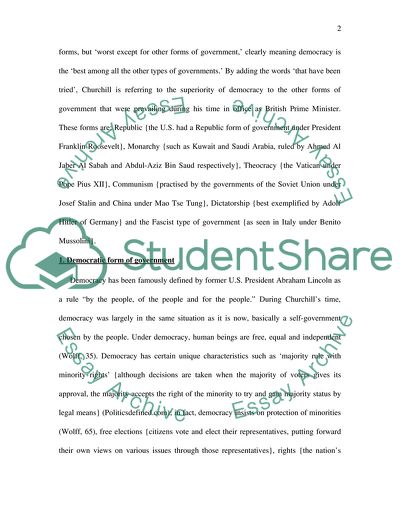Cite this document
(Is Winston Churchill's Definition of Democracy Correct Essay, n.d.)
Is Winston Churchill's Definition of Democracy Correct Essay. Retrieved from https://studentshare.org/politics/1710486-it-has-been-said-that-democracy-is-the-worst-form-of-government-except-all-the-others-that-have-been-tried-winston-churchill-evaluate
Is Winston Churchill's Definition of Democracy Correct Essay. Retrieved from https://studentshare.org/politics/1710486-it-has-been-said-that-democracy-is-the-worst-form-of-government-except-all-the-others-that-have-been-tried-winston-churchill-evaluate
(Is Winston Churchill'S Definition of Democracy Correct Essay)
Is Winston Churchill'S Definition of Democracy Correct Essay. https://studentshare.org/politics/1710486-it-has-been-said-that-democracy-is-the-worst-form-of-government-except-all-the-others-that-have-been-tried-winston-churchill-evaluate.
Is Winston Churchill'S Definition of Democracy Correct Essay. https://studentshare.org/politics/1710486-it-has-been-said-that-democracy-is-the-worst-form-of-government-except-all-the-others-that-have-been-tried-winston-churchill-evaluate.
“Is Winston Churchill'S Definition of Democracy Correct Essay”. https://studentshare.org/politics/1710486-it-has-been-said-that-democracy-is-the-worst-form-of-government-except-all-the-others-that-have-been-tried-winston-churchill-evaluate.


